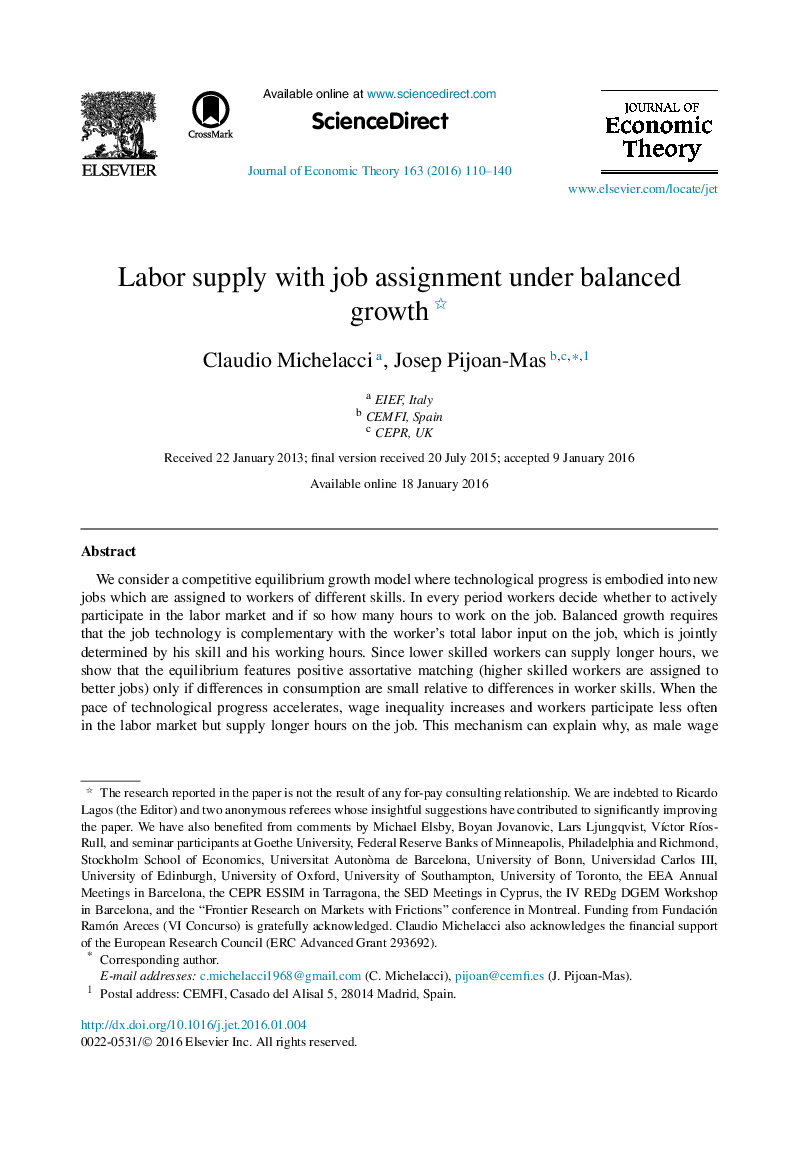| Article ID | Journal | Published Year | Pages | File Type |
|---|---|---|---|---|
| 956668 | Journal of Economic Theory | 2016 | 31 Pages |
We consider a competitive equilibrium growth model where technological progress is embodied into new jobs which are assigned to workers of different skills. In every period workers decide whether to actively participate in the labor market and if so how many hours to work on the job. Balanced growth requires that the job technology is complementary with the worker's total labor input on the job, which is jointly determined by his skill and his working hours. Since lower skilled workers can supply longer hours, we show that the equilibrium features positive assortative matching (higher skilled workers are assigned to better jobs) only if differences in consumption are small relative to differences in worker skills. When the pace of technological progress accelerates, wage inequality increases and workers participate less often in the labor market but supply longer hours on the job. This mechanism can explain why, as male wage inequality has increased in the US, labor force participation of male workers of different skills has fallen while their working hours have increased.
